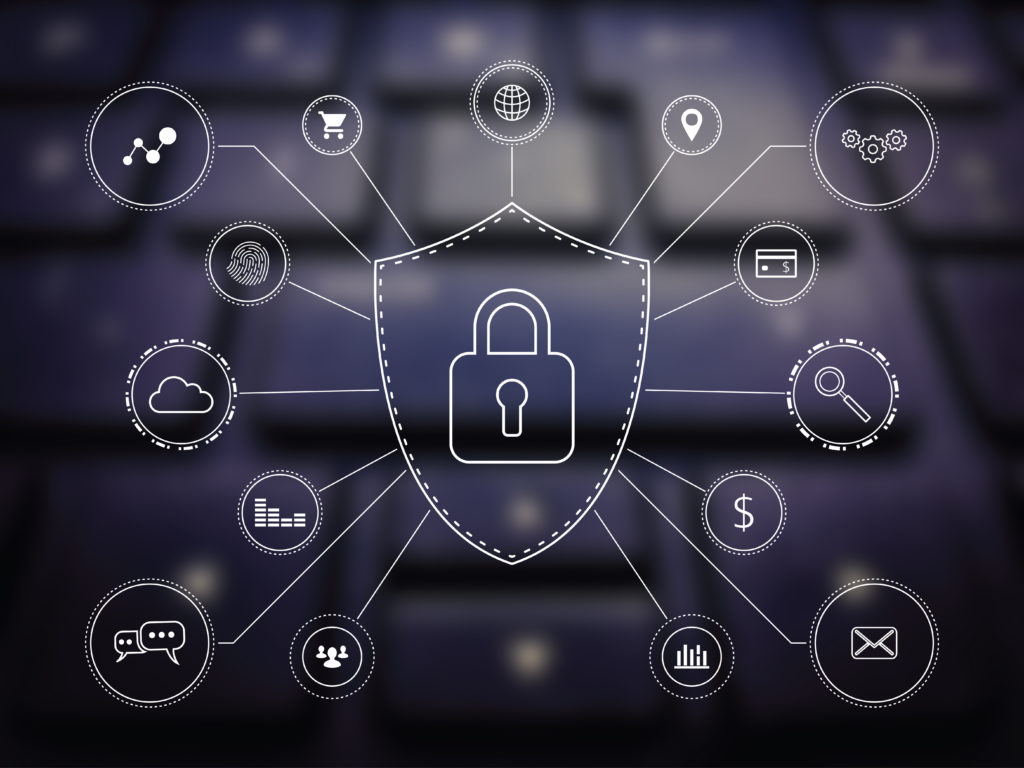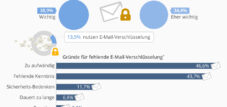+++ Often heard - never used: Protective measures on the Internet +++ One in four never changes their passwords +++ End-to-end encryption is hardly widespread +++
Often heard - never used: protective measures on the Internet
Although around 90 percent of Germans know about the advantages of password managers, less than a quarter of Germans use them. The situation is similar with other protective measures that you should use if you value high security in the digital world . While email encryption such as PGP or S/MIME is still used by almost a third of respondents, biometric identification is relatively unpopular. Around a quarter of Germans use features such as fingerprint scanners, which are now available on most smartphones.
One in four people never change their passwords
The email box, the Amazon account and the Facebook profile: There are a variety of services on the Internet for which you have to set a password. Very few people find it easy to remember a new access code every time. Changing your passwords regularly for security reasons is too strenuous for most people - this is what a current study by YouGov .
According to this, 26 percent of Germans never change their passwords for Internet services. 16 percent of those surveyed said they change their access codes once a year, and 15 percent do it every six months, as the Statista graphic shows.
IT security experts recommend complex passwords with a combination of letters, numbers and special characters, as these are not so easy to decrypt. However, such codes are particularly difficult to remember. That's why half of Germans (51 percent) write down the passwords they use online so they don't forget them.
End-to-end encryption is rarely used
Three quarters of German internet users think it is important to be able to encrypt emails so that only the recipient can read them. This emerges from a current survey commissioned by WEB.DE and GMX . In fact, only around 16 percent of those surveyed use end-to-end encryption. But why do online users fail to secure their communication? 37.6 percent find the procedure too time-consuming. A similar number say that they simply don't know how to do it.


